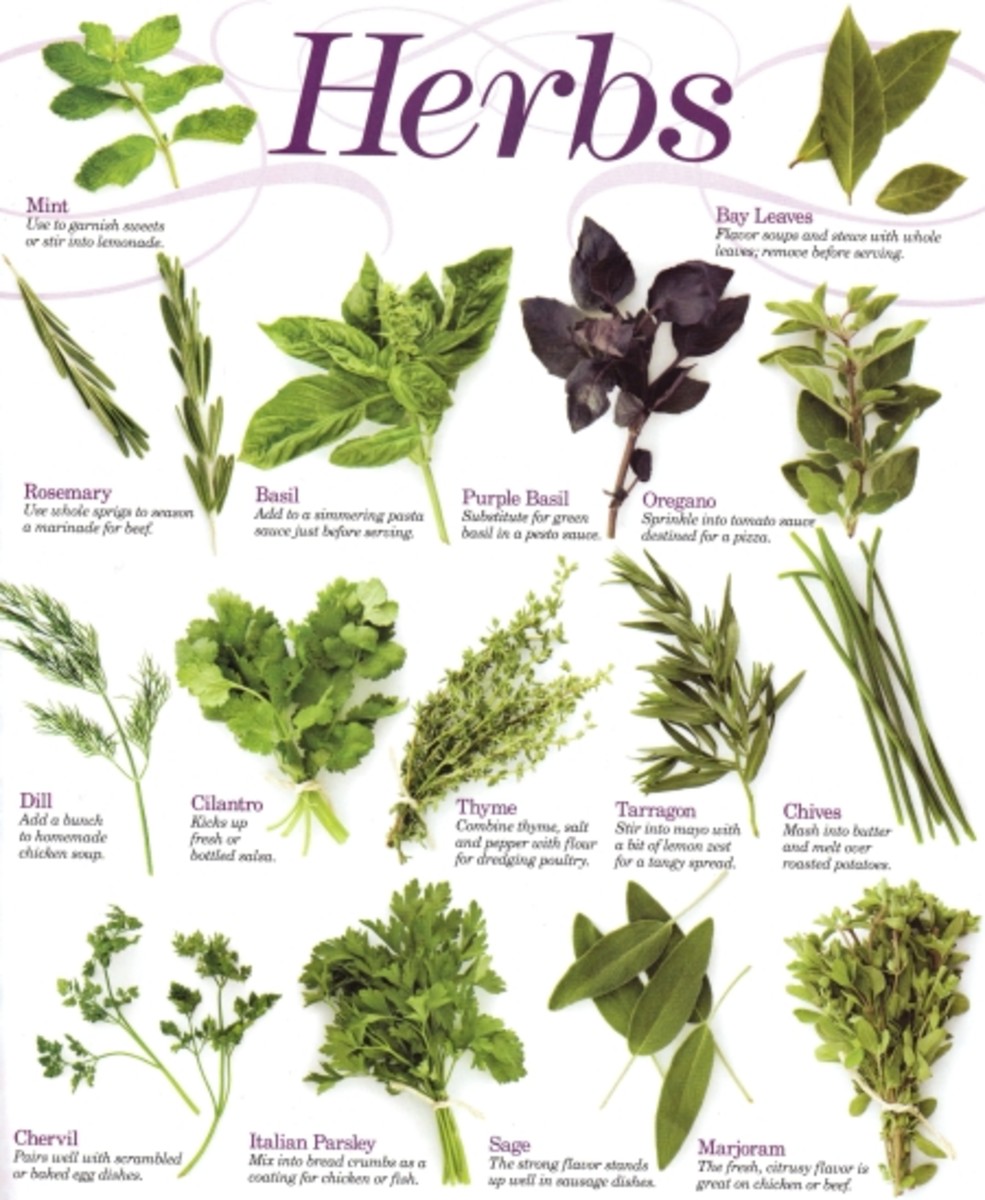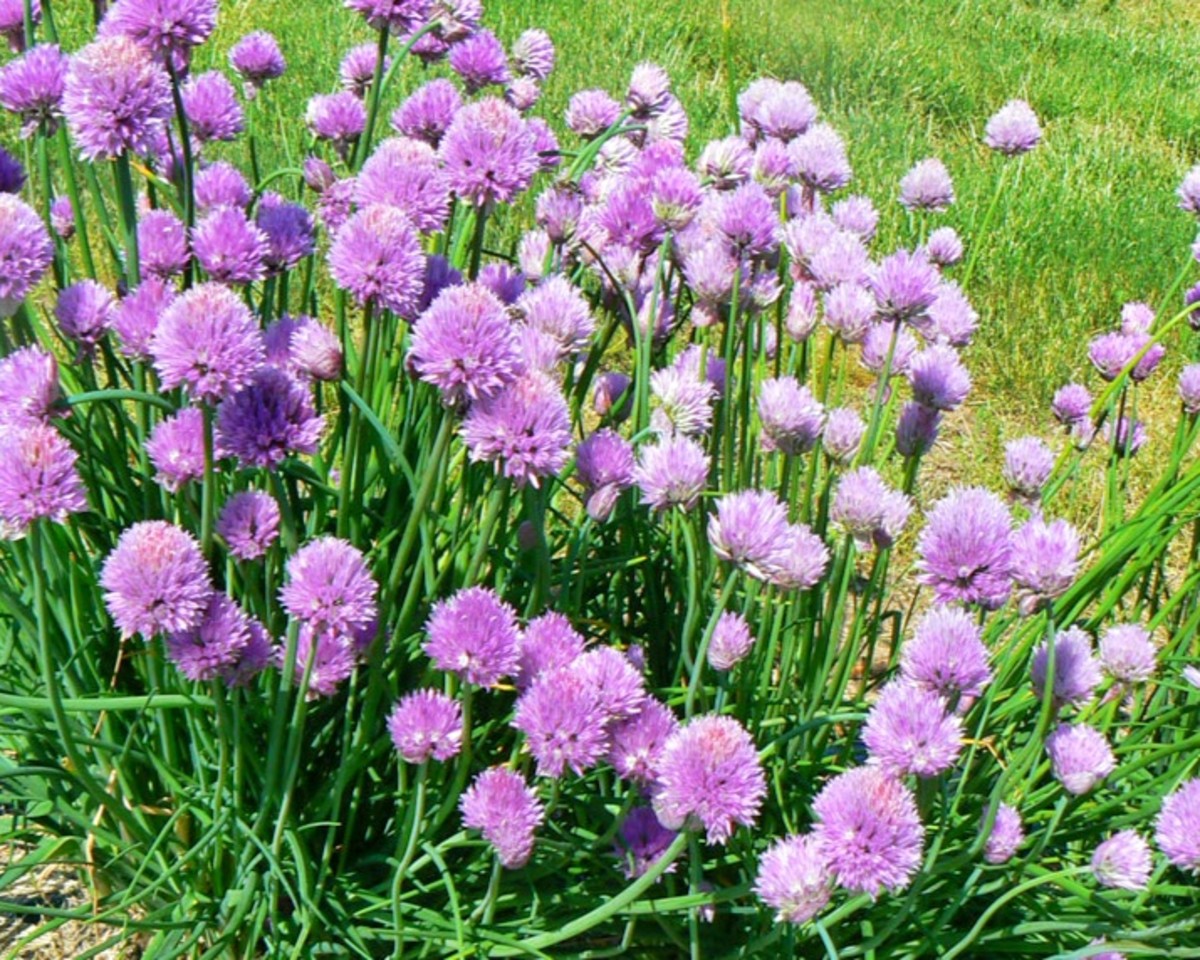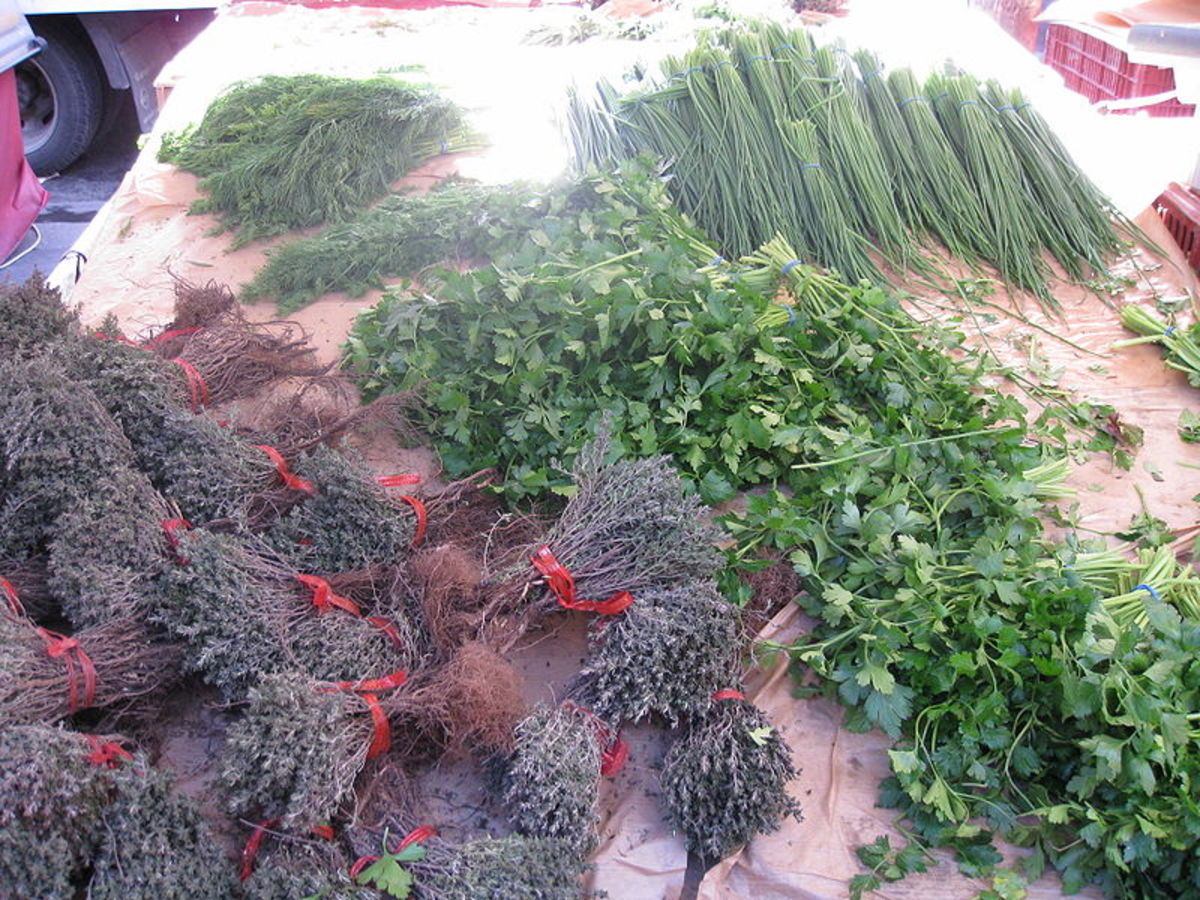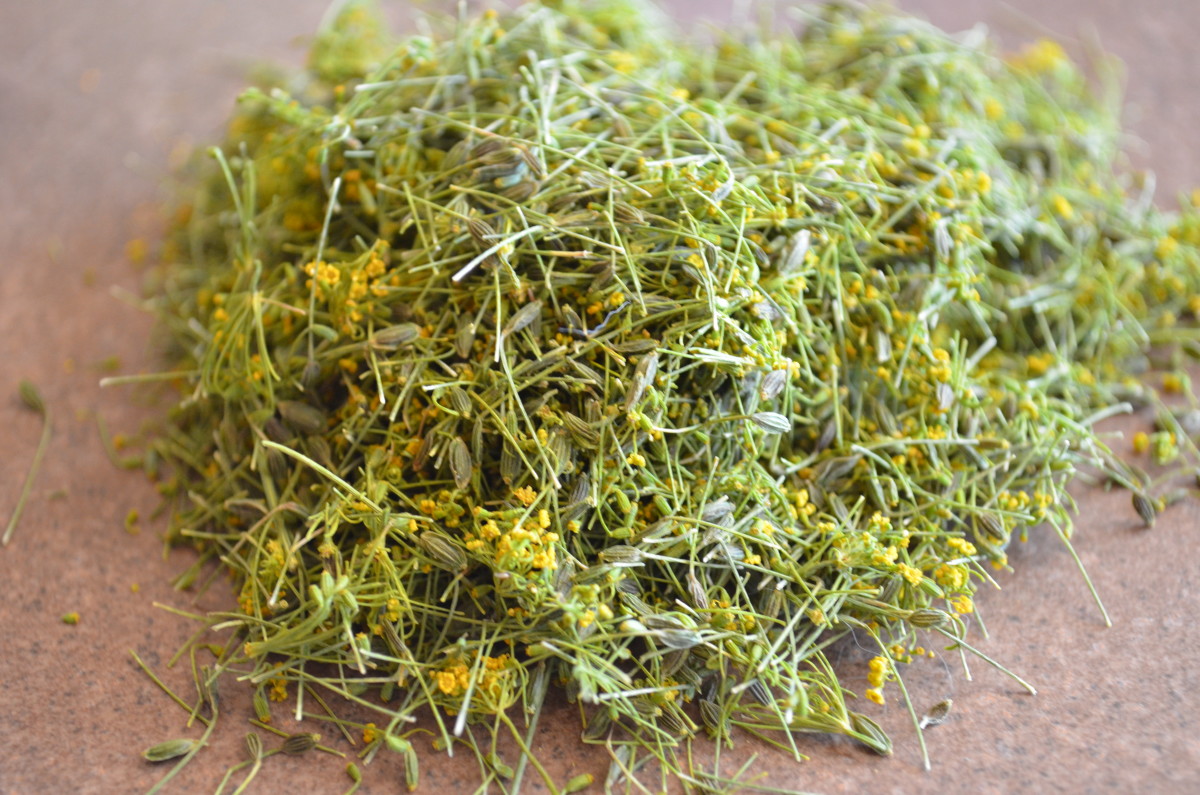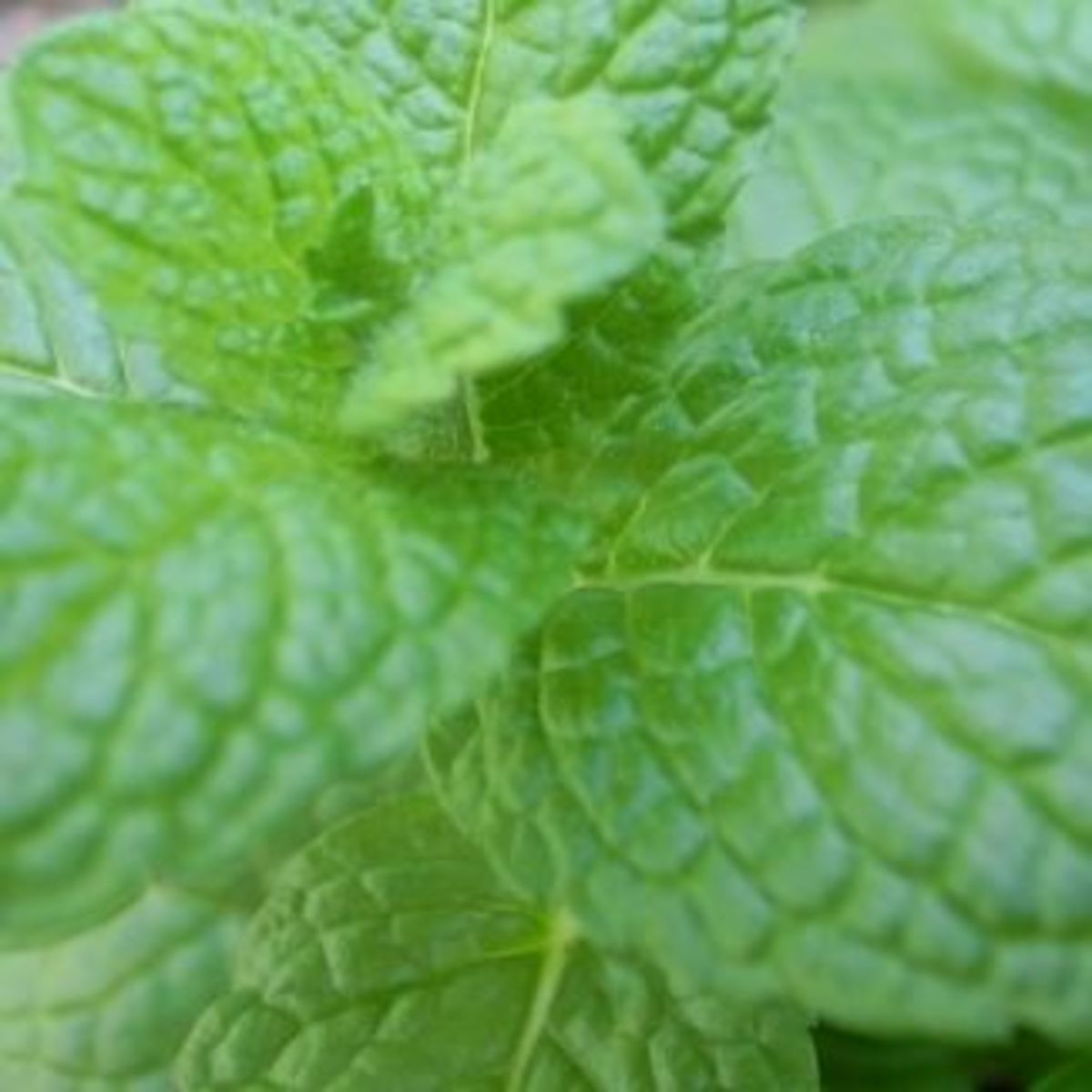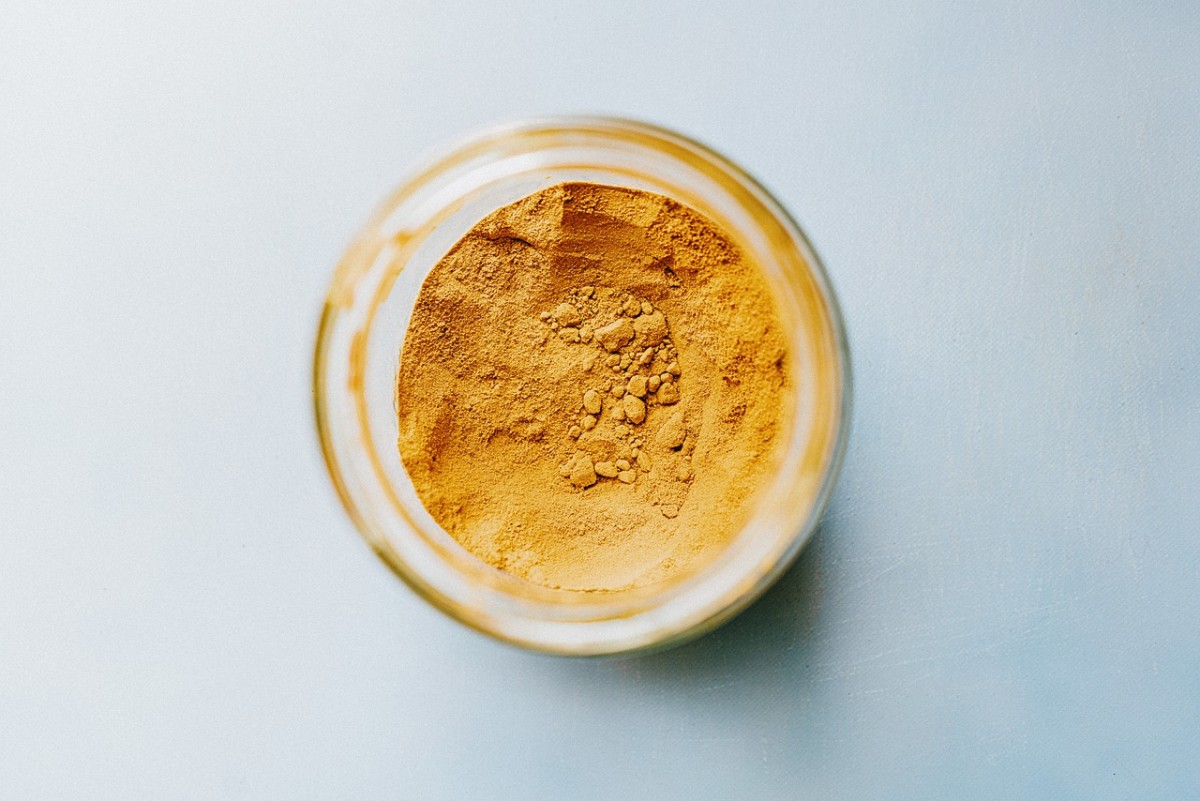How to Cook with Herbs for Health
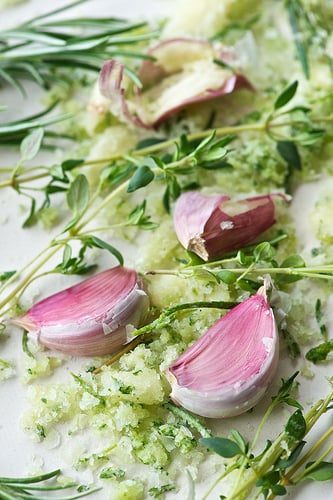
Adding fresh herbs to your diet is one of the easiest ways to increase your intake of vitamins and minerals. Usually the best way to consume herbs is by eating them fresh and raw but it may be difficult to convince your family as many herbs are bitter-tasting. The second best way to eat more herbs is by using them in your everyday cooking.
If you have a garden or just a window box, you can grow fresh herbs that you can simply snip, rinse and cook. There is nothing better than the smell of rosemary wafting through the house. Enliven pasta by throwing some chopped herbs into the sauce, perk up your pizzas and razzle-up your roasts with a handful of fragrant delight, knowing that they all help toward keeping you and your family healthy.
Here are some ideas for incorporating herbs into your cooking. First a look at some common culinary herbs and their health benefits.
Herb
| Good for:
|
|---|---|
Chive
| Stimulating appetite, aiding digestion & circulation, as an antiseptic.
|
Dill (weed and seed)
| Salt replacement, anti-oxidant, reducing blood sugar levels. Contains folic acid, riboflavin, niacin, vitamin A, B-carotene, vitamin-C.
|
Thyme
| Digestion and breaking down fatty acids, sore throats, gum infections, hangovers. Used externally to ease rheumatic pain. Contains thymol, anti-oxidants, potassium, iron, calcium, manganese. Also vitamins A, B complex, C, E, K & folic acid.
|
Caraway (leaves, roots and seed)
| Freshening breath, increasing appetite, relieving flatulence. Can offset side-effects of medication. Seed contains ash, calcium, phosphorus, sodium, potassium, iron, thiamine, riboflavin, niacin, vitamins C & A.
|
Chicory
| Gall-stones, liver function, gout & rheumatism. Diuretic. Roots can be a gentle laxative.
|
Cilantro/Coriander (leaves & seed)
| Digestion, flatulence, reducing fever, asthma & upper respiratory problems, lowering cholesterol, conjunctivitis.
|
Rosemary
| Halitosis, headaches, flatulence. Mildly antiseptic, used externally as insect repellent. Contains vitamins A , B6, C and folate. Also calcium, iron, magnesium, manganese, and potassium.
|
Fennel
| Heartburn, constipation, digestion, asthma, bronchitis. Mild decongestant. Reduces cramp and spasms. Contains vitamin C, manganese, potassium, magnesium, calcium, iron, vitamin B3.
|
Garlic
| Lowering blood pressure, stroke prevention, diarrhoea, whooping cough, parasites, digestive upsets, toothache, colds, earache.
|
Parsley
| Freshening breath, diuretic, increases lactation, skin problems. Contains vitamin A, C, B complex & K .
|
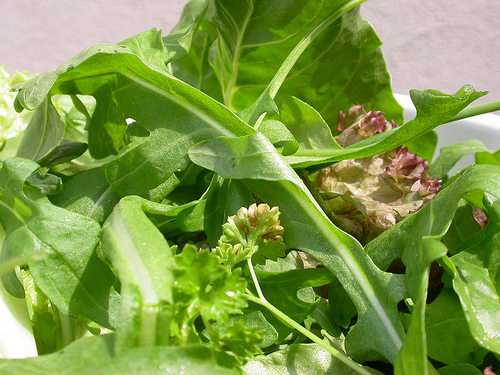
Herbs in Salads
Tear leafy herbs and add to salads. Sprinkle seeds or incorporate into dressings. Herbs that are excellent in salads are basil, chervil, chives, cilantro/coriander, watercress, dill, fennel, lemon balm, lovage, marjoram, mint, parsley, savory, sweet cicely and thyme. Horseradish root can be grated and added at the last minute. It is always best to add herbs to a salad just before serving. Tear, rather than chop leaves to preserve their looks.
Meat
| Herbs
|
|---|---|
Beef
| Basil (best as pesto), bay leaf, caraway, coriander, dill, garlic, marjoram/oregano, mint, parsley, rosemary, sage, tarragon, thyme (always good).
|
Lamb
| Basil, bay leaf, coriander, dill, garlic, marjoram/oregano, mint, parsley, rosemary (of course), tarragon, thyme.
|
Chicken
| Most herbs will work well with chicken. Try chives, garlic, marjoram/oregano, parsley, rosemary, sage, tarragon, thyme.
|
Pork
| Basil, chives, oregano, rosemary, sage, thyme,
|
Herbs in Stews and Casseroles
Herbs are wonderful in stews and casseroles. Dried herbs are packed with flavor and are best added at the beginning of cooking unless your recipe states otherwise. You can substitute fresh herbs at the ratio of one tablespoon of fresh for each teaspoon of dried. If using fresh herbs, add about a third at the beginning of cooking and add the remainder a little before serving. Even if the recipe does not call for herbs, you can always throw some in anyway. Here is a guide to the best herbs that complement meat dishes.
Herbs on Pizzas and Savory Pastries
As well as the usual basil and oregano, you can surreptitiously sprinkle a few celery seeds, caraway seeds or fennel seeds on your pizzas. Most herbs that work in salads will go well on or with pizza. Savory pastries are enhanced by chives, oregano, parsley and thyme.
Recommended Book on Cooking and Growing Herbs

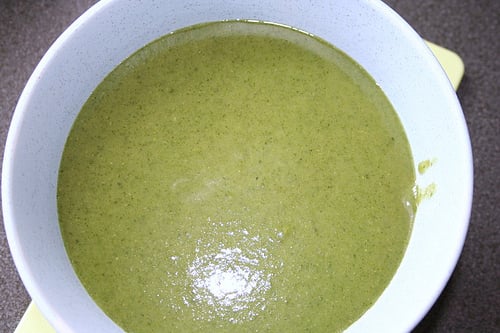
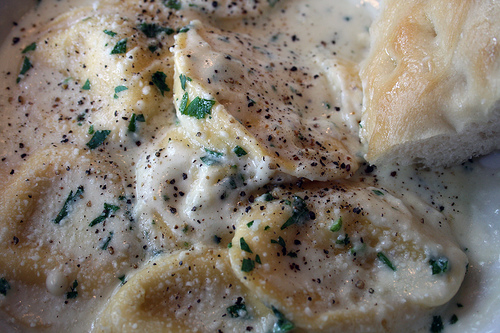
Herbs in Soup
Don't even think of making soup without adding herbs for flavor and vitamins. Use the guide above to decide which herbs to use for soups containing meat. When making broth be sure to make a bouquet garni (a small muslin bag of fresh and/or dried herbs) to add piquancy.
Nettles are incredibly healing - used in cooking or as tisanes (infusions or teas), they are good for anemia, arthritis, constipation, eczema, gout, hemorrhage, hemorrhoids, menorrhagia, and rheumatism. Use externally for arthritic pain, burns, gout, hemorrhoids, insect bites, neuralgia, nosebleed and scalp problems.
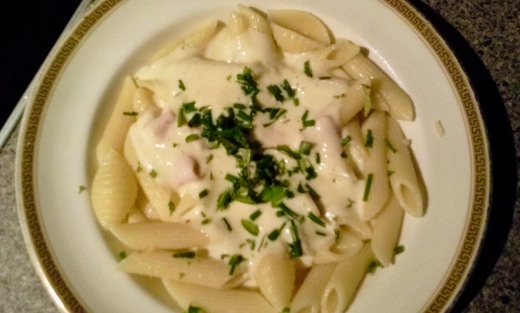
Herbs in Sauces
Fish dishes are lifted from ordinary to deliciously health-promoting with the addition of a herb-laden sauce. Pasta meals are also perfect with herb sauces. A simple cheese sauce is sublime with fresh chopped chives, parsley, oregano and one chopped sage leaf added during cooking.

Fill Your Sandwich with Leafy Herbs
Herby salad leaves, such as basil, watercress and rocket taste absolutely divine in sandwiches, and there's no easier way to benefit from all the rich anti-oxidant goodness found in leafy herbs. Pull them fresh from the plant and just layer them in your sandwich, bread roll or baguette.
Double the good stuff by adding chopped parsley, mint, chives, dill or any other growing herbs to mayo to make a great salad dressing.
Herb Cooking Resources with Recipes Galore
Healthy Herbs
As you can see, herbs are little powerhouses of nutrition that can help maintain a healthy diet. All the above herbs can be added to food without any ill-effects. However, while many herbs have beneficial medicinal properties, they may cause harm if taken in excess, especially in concentrated forms. Before self-medicating with herbs, make sure you carry out thorough research or get the advice of a qualified herbalist.

